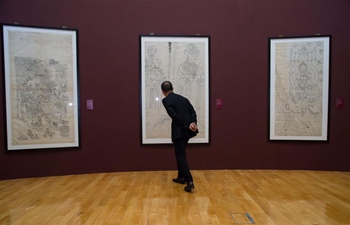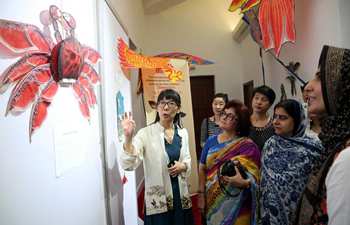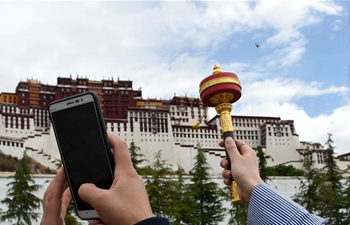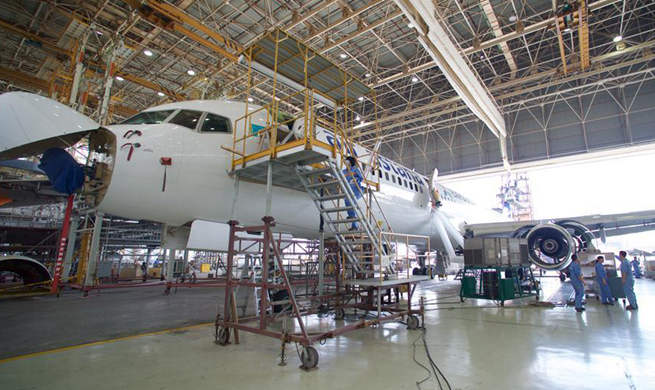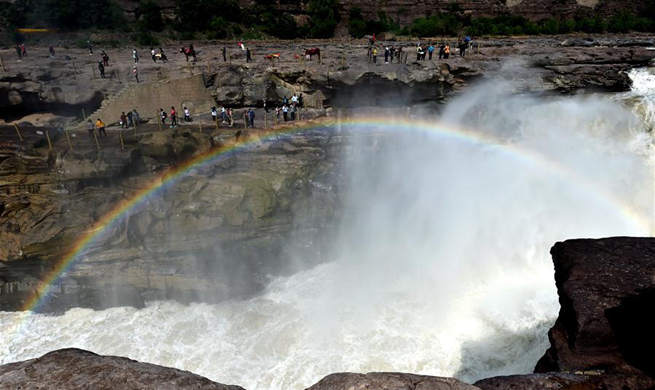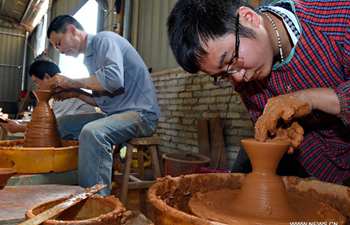By Matthew Rusling
WASHINGTON, May 23 (Xinhua) -- The U.S. relationship with Israel saw a major reset with U.S. President Donald Trump's first visit to Israel, breaking with the last eight years of chilled ties under the Obama administration.
Trump's just-concluded visit to Israel saw two historic firsts: it was the first time a newly elected U.S. president ever included Israel in his first overseas trip, and it was also the first time a U.S. president ever visited the Western Wall in Jerusalem.
Israeli and U.S. media are calling the visit hugely significant. The area above the Wall is claimed by both Israelis and Palestinians as a sacred religious site, and Trump's visit to the Wall signifies Trump's support for Israel, experts said.
"President Trump is the first American president to visit the wall while he was in office. It symbolically recognizes Israel's historical ties to Jerusalem and its claim of sovereignty," Jim Phillips, senior Middle East research fellow at the Heritage Foundation, told Xinhua.
Trump's attitude toward Israel is a sharp departure from his predecessor Barack Obama, who had sometimes tense relations with Israeli Prime Minister Benjamin Netanyahu.
"Bilateral relations will be much better under Trump because he has a similar worldview as Netanyahu," Phillips said.
Obama "glossed over Israel's security needs and pressed (Israel) to make concessions to the Palestinians, he said.
Trump and Netanyahu also share a common view that Iran is a threat to their security and interests, whereas Obama did not view the Islamic Republic in quite the same way.
Netanyahu was irked by Obama's conclusion of a deal with Iran on the latter's nuclear program in July 2015.
David Pollock, a senior fellow at the Washington Institute for Near East Policy, echoed sentiments that Trump's visit to the wall is highly significant.
"The significance is that until now the U.S. government has been extra sensitive or cautious about doing that because it's officially an area that's in dispute," Pollock told Xinhua. "So U.S. officials generally don't travel to places... that are disputed but over which Israel claims sovereignty."
That's not just applied to the wall but to East Jerusalem and the old city in general. And the fact that Trump is breaking that taboo is a sign that the U.S. recognizes the significance for the Jewish people of that holy site, Pollock said.
"It's clear that the tone (between the U.S. and Israel) is going to continue to be much warmer, especially at the personal and the symbolic level that it was during Obama's eight years," he said.
At the same time, there are still policy issues that are not agreed between the American and Israeli governments, but the Trump administration is determined to discuss those issues privately with the Israelis and not make a public dispute, Pollock said.
That's also a departure from the Obama administration, as the White House's differences with Israel were at times publicly aired and Obama had at times publicly blasted Israel over certain issues.
On Palestinians' view on Trump's visit to the Western Wall, Pollock said they don't like it but accept it. "And they are very keen on moving forward with its own relationship with the Trump administration. So they're not going to make an issue of it," he said.
Pollock also said the Palestinians may not make much of a fuss if Washington decided to relocate its embassy to Jerusalem - the city that is sacred to Judaism, Christianity and Islam.
"And actually I think that despite all the statements that they might make, that would also be the case if the U.S. decided to start moving the U.S. embassy to Jerusalem, to West Jerusalem, the part of the city the Palestinians don't claim for themselves," he said.
On a possible peace deal between Israel and the Palestinians, Trump has said he could get it done.
But U.S. experts said that, despite Trump's push, a full Israeli-Palestinian peace plan is highly unlikely any time soon, though the two sides could take baby steps toward peace, with the Trump administration as an intermediary.
Those steps might include confidence building measures, practical improvements, and willingness to deepen the circle of dialogue to include other Arab countries, the experts said.




